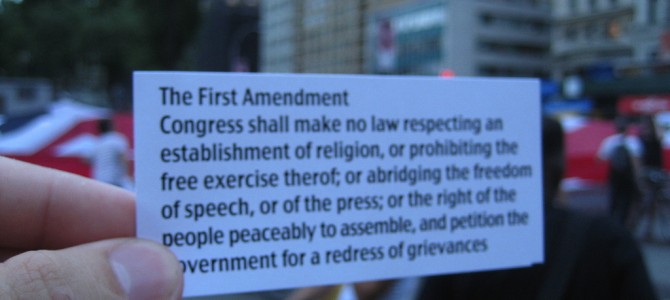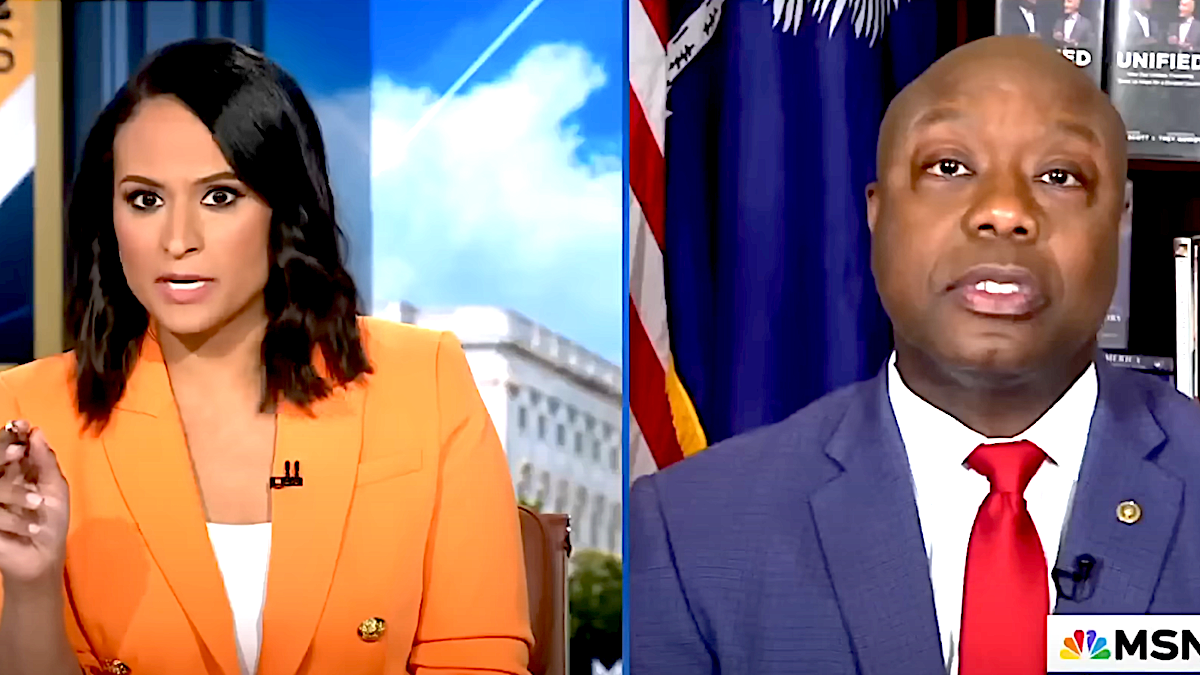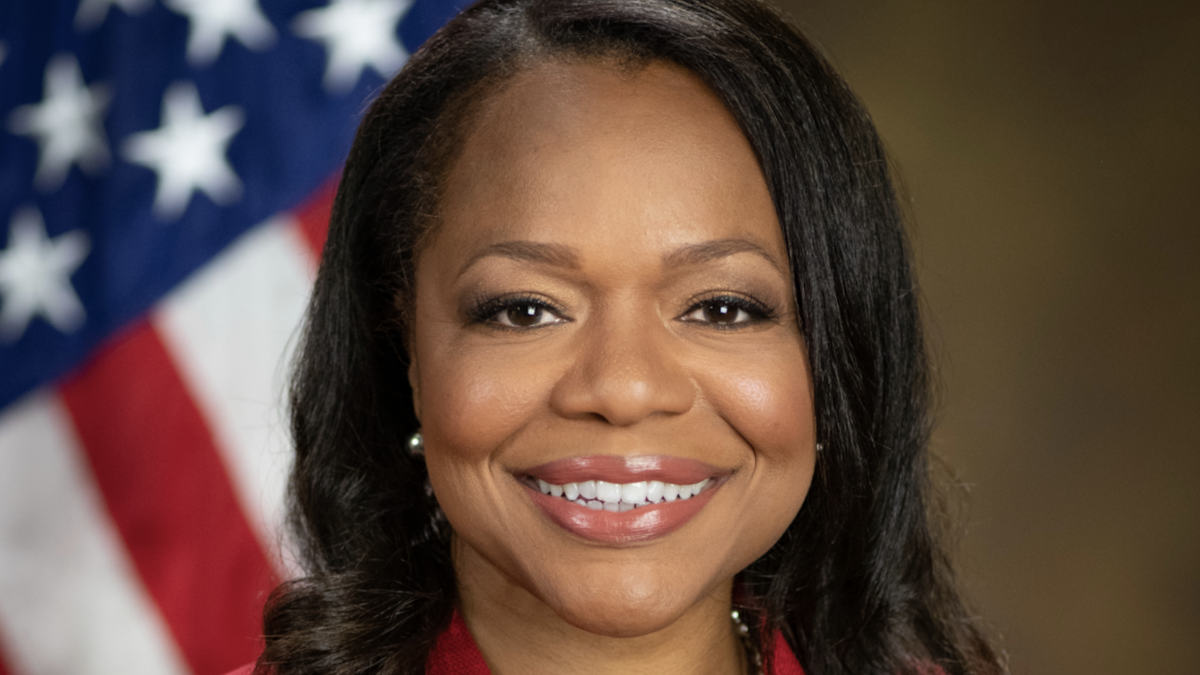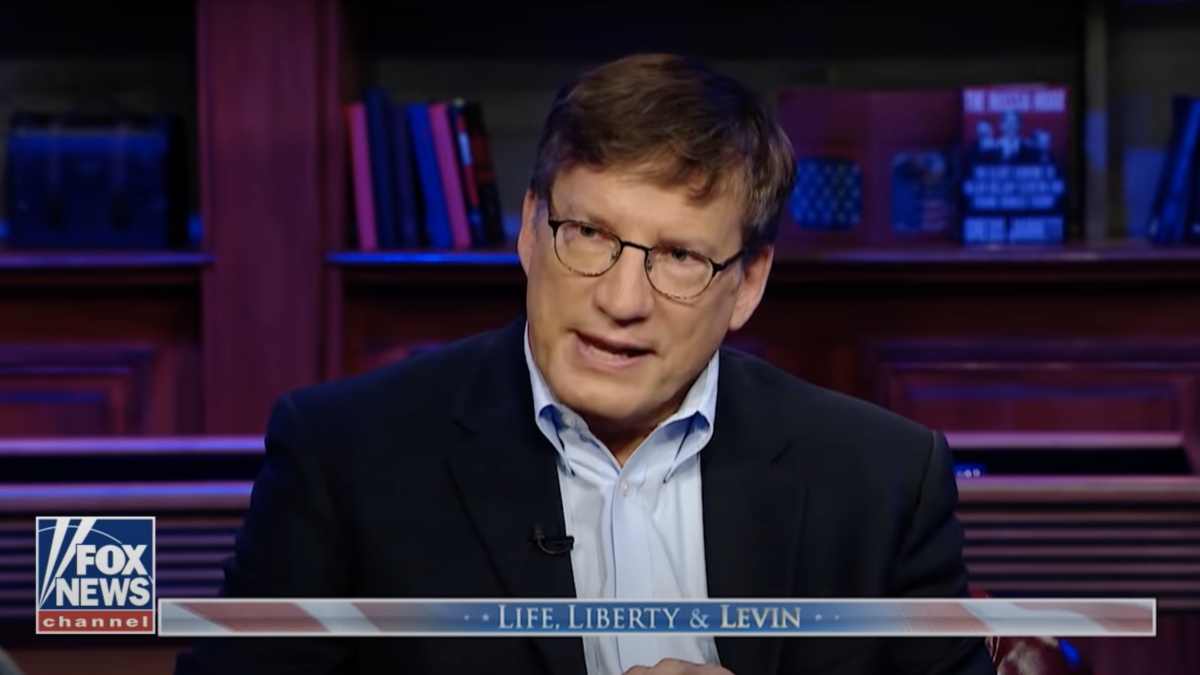
Everyone wants bipartisanship, in theory. But the results often leave something to be desired. When Rep. Alexandria Ocasio-Cortez (D–N.Y.) and Sen. Ted Cruz (R–Texas) agree on something, our first reaction is likely to be that if such politically disparate people both like an idea, it must be good. The truth is often more sinister: the best way to get bipartisan majorities is to propose infringing the rights of an unpopular group of people.
That is exactly what is being proposed when Ocasio-Cortez and Cruz talk about barring former legislators from working as lobbyists. Any such bill would violate the First Amendment while doing nothing to clean up the political swamp in Washington.
We Can’t Violate Their Rights Because They’re Unpopular
The unpopular group here is lobbyists — specifically, former members of Congress who have become lobbyists. While many people are happy with their own senator and representative, Congress as a whole has almost never been popular. The most recent Gallup poll put Congress’s approval rating at just 20 percent, and that’s actually an improvement: in 2013, it hit an all-time low of 9 percent.
The public’s opinion of lobbyists is, if anything, worse. A 2013 Gallup poll called Congress the second-shadiest industry, with just 8 percent of respondents saying that the ethical standards in the federal legislature were “high” or “very high.” Only one group was considered even less ethical: lobbyists, who polled at 6 percent on the same question.
Most issues before Congress have lobbyists on both sides, but when we talk about lobbyists, it is much like talking about lawyers. The profession generally is thought to be low-down, dishonest, and corrupt; but the ones representing my interests are crusaders for justice, brave and honest men and women who boldly speak the truth to power. In our minds, it’s always the other guy’s lawyer or the other side’s lobbyist who give them all a bad name.
We don’t think of either lobbyists or congressmen as downtrodden people in need of protection, but the rights protected in the Constitution are not just for the weak. Neither are they only for the popular. Rights belong to everyone. Restricting the rights of an unpopular minority can be popular with a majority of people who don’t care to think things through, but that is precisely why they are protected in the Constitution.
The First Amendment Applies to All—Even Lobbyists
The right in question here is one guaranteed by two sections of the First Amendment: the right to free speech, and the right to petition the government for the redress of grievances.
As a matter of basic free speech, the proposed ban is already a problem. What a lobbyist does is essentially free speech in action, and not just any speech but political speech, the sort of speech that is necessary for a self-governing people. Lobbyists are hired by companies, unions, and advocacy groups to talk to government officials about public policy. Their goal is to convince those officials that their client’s view of things is correct, and that some law should be altered (or not altered) in accordance with that view.
That kind of speech is at the core of the free speech protections of the First Amendment. But if that were not enough, the same amendment specifically protects the right of the people “to petition the Government for a redress of grievances.” That means that all citizens have the right to write to their congressmen, call their offices, or speak to them in person if they can manage an appointment.
Do lobbyists have an easier time getting appointments? Do ex-congressmen lobbyists have an easier time still? Of course. Powerful people have unequal access to other powerful people. That is unfortunate, but it is not sufficient to destroy their natural rights. The New York Times and CNN have a bigger platform to exercise their rights to free speech, too, but that does not mean that bloggers and YouTube stars can vote to deprive them of those rights.
Limiting Rights Requires an Amendment, Not Just a Bill
Limiting natural rights is generally a bad idea, which is why statesmen of the early republic went out of their way to protect our rights in the Constitution. That is a good indication that we should tread lightly around them. The founding generation was not perfect, but they were somewhat unique in acknowledging that there were some things that should be kept beyond the reach of government interference—a lesson we should try not to forget.
If rights are guaranteed by the Constitution, limiting them requires a constitutional amendment. The Democrats acknowledged this when they voted (unsuccessfully) to reduce the free speech and free press protections of the First Amendment in order to overturn Citizens United v. FEC, a 2010 censorship case. Reducing the right to petition the government would require the same effort. Fortunately, respect for the Bill of Rights has become sufficiently ingrained in our culture that the thought of repealing it, even in part, gives most Americans pause.
Limiting those rights in the way Ocasio-Cortez and Cruz propose is especially troublesome because it creates two classes of Americans: one who may petition the government, and one who may not. We have seen examples of this kind of thinking before, but none have made their way into law.
Journalists often tell us that the freedom of the press is a grant of rights to a particular group—them. In reality, and as courts have repeatedly affirmed, the right is a right for all Americans to publish their ideas. It is the same with the right to petition the government: it belongs to all of us, not just those who do it for a living.
It Would Fail Anyway
Even if an amendment limiting that right were passed, the legislation required to bring it into effect would be more difficult than Ocasio-Cortez and Cruz make it sound. We have laws regulating lobbyists and requiring disclosure, and one defines “lobbying activity” as “lobbying contacts and efforts in support of such contacts, including preparation and planning activities, research and other background work that is intended, at the time it is performed, for use in contacts, and coordination with the lobbying activities of others.”
What are “lobbying contacts”? The same statute defines it as “any oral or written communication (including an electronic communication) to a covered executive branch official or a covered legislative branch official that is made on behalf of a client with regard to [federal lawmaking or rulemaking].”
There are a variety of exceptions to the law, and the deeper you get into it the more convoluted it becomes. That’s because this law (the Lobbying Disclosure Act of 1995) is attempting to regulate a pretty basic function of human interaction: one person telling another what he thinks the law ought to be. Former members of Congress have opinions about these things, and they will continue to make them known, probably even more so than most Americans.
It brings to mind the Eighteenth Amendment, which allowed Congress to ban alcohol, and the Volstead Act, which actually banned it. The wording of the amendment is simple, the legislation that followed was more complex. Exceptions were made, loopholes exploited, and enforcement was nearly impossible. To the extent it was enforced, the Volstead Act created the first stirrings of the big government police state that we now see spread to other areas of the law.
The would-be Ocasio-Cortez-Cruz Act would require snoops and spies following ex-congressmen to meetings, listening in on phone calls, and reading emails just to make sure that no one was talking about what the laws of the country should be. The disclosures required by current law, passed in 1995, are a much better solution. People should be allowed to talk about whatever they want.
To the extent that means professionally lobbying the government, the 1995 act lets everyone know what’s going on and who pays whom to do what. After that, it’s up to the voters to decide if their representatives in Washington are spending too much time listening to the professional petitioners and not enough time hearing about what their actual constituents want to do. The information is out there, and the voters can choose what to do with it. That is a much better solution than gutting the First Amendment to score some cheap political points.







